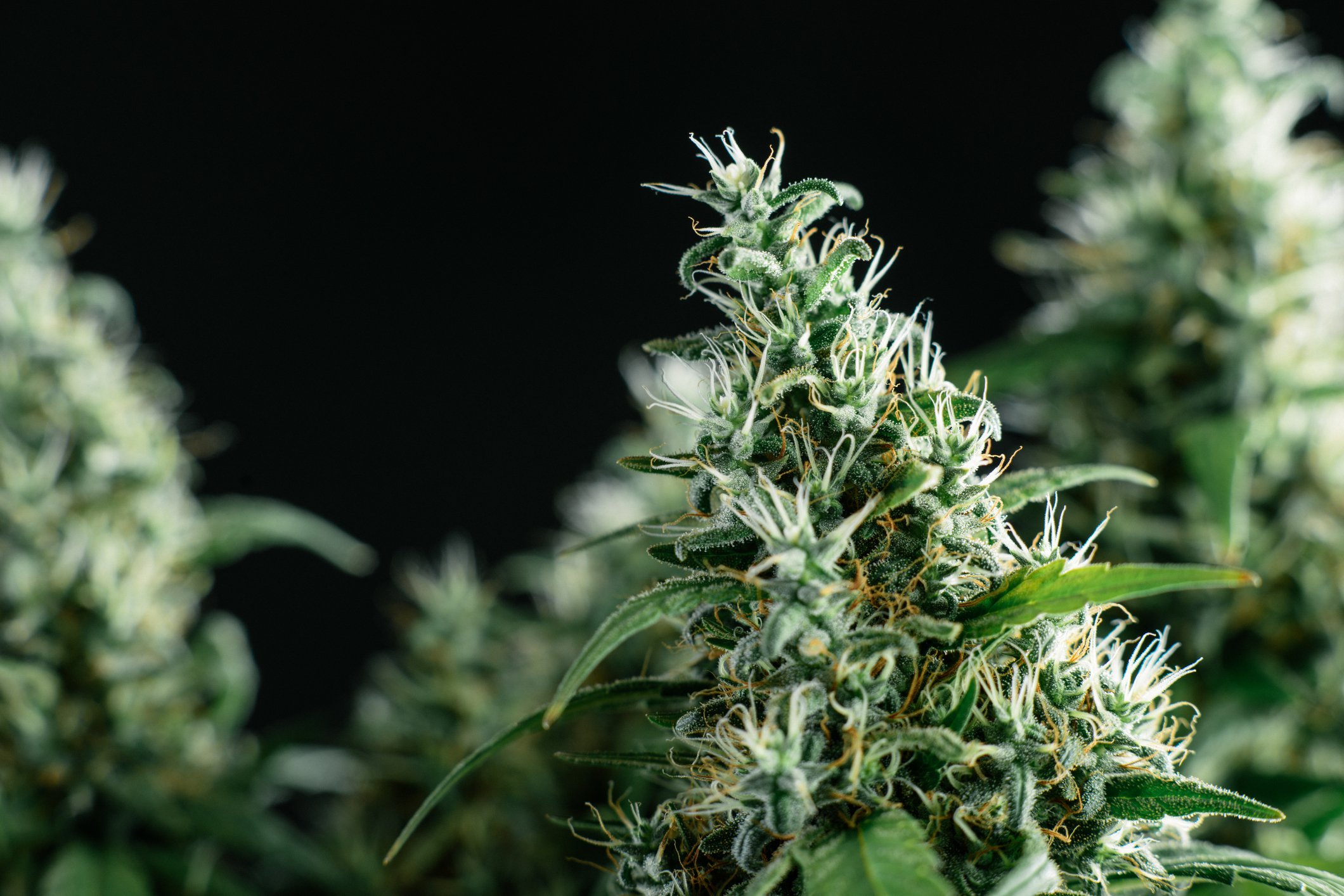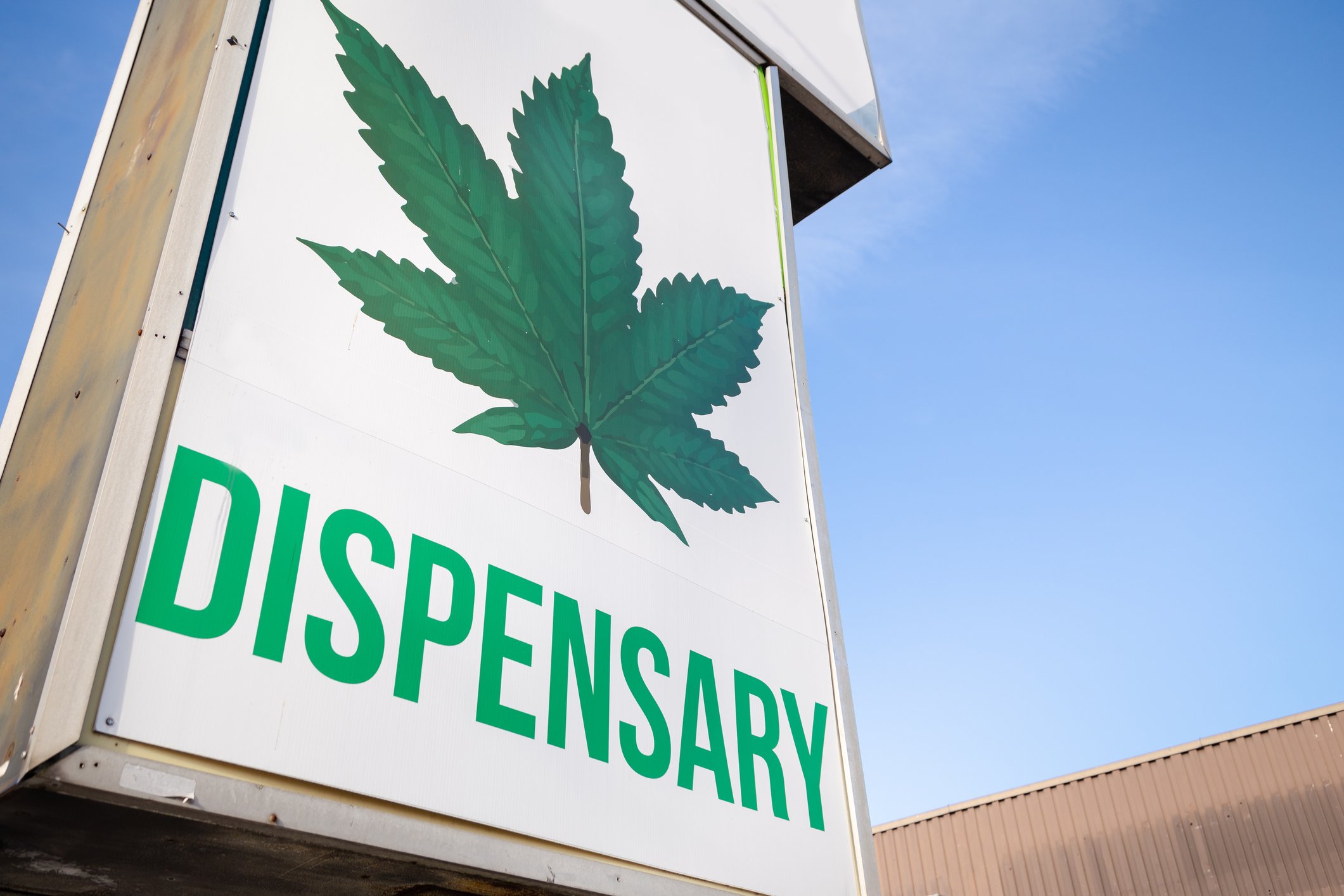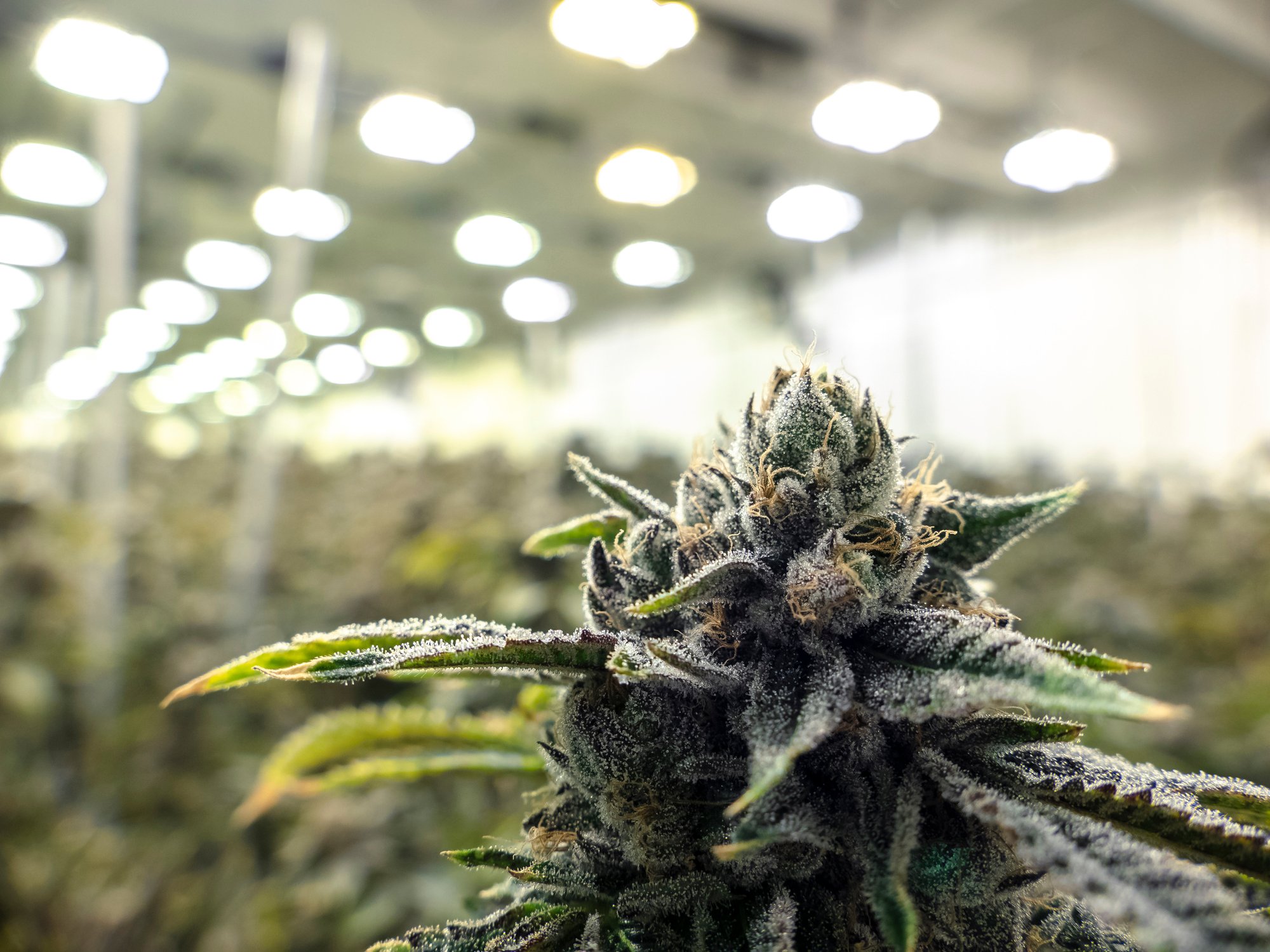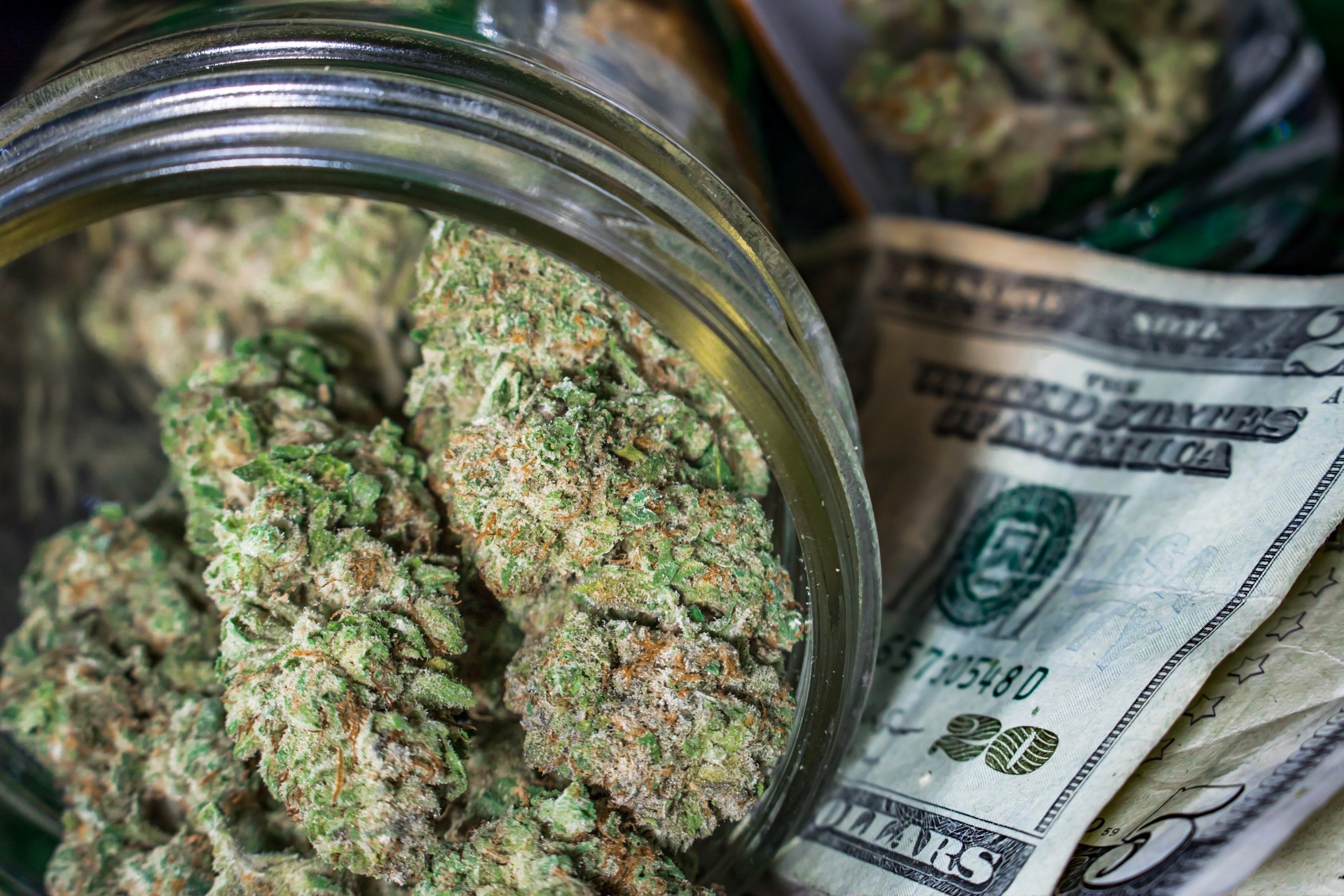The stage appeared to be set for the cannabis industry to thrive in 2019. Canada had legalized recreational marijuana and was less than a year away from bringing high-margin derivative products to market, while a number of U.S. states (e.g., New York and New Jersey) looked to be close to legalizing adult-use weed. This was supposed to be the year that the green rush "delivered the green" -- but it wasn't meant to be.
Instead, a flurry of problems have plagued the North American cannabis industry. In Canada, regulatory issues have made it difficult for legal weed to reach consumers. Meanwhile, in the U.S., high tax rates have made competing with low-cost black market cannabis almost impossible. The result has been a strong black market and hefty losses for most pot stocks.
Despite this, Wall Street remains predominantly optimistic about the prospects for cannabis stocks over the next year. The one-year consensus price targets for pretty much every pot stock is currently higher than where they're currently valued, suggesting that Wall Street expects some green from the marijuana industry in 2020. However, the following three marijuana stocks have some of the highest suggested upside in the industry.

Image source: Getty Images.
CannTrust Holdings: 363% upside
There are certainly some surprises on this list, and it kicks off with the pot stock expected to see the most upside in 2020: CannTrust Holdings (CTST +0.00%).
If the name rings a bell, it could be because CannTrust was found to have purposefully grown cannabis in five unlicensed rooms at its Niagara facility for a period of six months (October 2018 – March 2019). Not only did the company illegally grow pot, but apparently its (now-former) CEO, Peter Aceto, was aware of the illicit operation and did nothing to stop it. As punishment for purposely subverting the Cannabis Act, CannTrust had its cultivation and sales licenses officially suspended in September by Health Canada, albeit the company was allowed to finish growing and process already propagating plants.
The thing is, Health Canada could have chosen to revoke CannTrust's licenses, but only chose to go as far as suspend them. This leaves the door open for CannTrust to regain its licenses in 2020, assuming it satisfies a laundry list of requirements set forth by Health Canada. CannTrust recently announced that it would destroy $58 million worth of illegally grown weed and should have met all aspects required by the regulatory agency by the end of March.
Although delisting from the New York Stock Exchange appears imminent, at least in my view, and that could be a short-term drag on CannTrust's stock, there's certainly a value proposition here if the company's licenses are reinstated. CannTrust is, after all, a top-five grower by peak production capacity, and it's one of four growers to have supply deals with every Canadian province. Perhaps best of all, the company's sales suspension hasn't been a death knell because of those aforementioned supply issues in Canada.
While 363% upside might be a bit aggressive, I would expect a much better year in 2020 for CannTrust.

Image source: Getty Images.
The Green Organic Dutchman: 249% upside
Another marijuana stock that should have an excellent upcoming year, at least based on Wall Street's consensus price target, is Ontario-based Green Organic Dutchman (TGODF +0.00%).
What makes this forecast such a head-scratcher is that, just two months ago, The Green Organic Dutchman significantly pared back its production forecast for the upcoming year, primarily because of Ontario's inability to license dispensaries. At the one-year mark following the commencement of adult weed sales in Canada, Ontario had just 24 open stores, or about one for every 604,000 people. As a result, TGOD, as the company is also known, announced that it would aim to produce just 10,000 kilos from four grow rooms at its flagship Valleyfield property in 2020, along with 12,000 kilos from its Ancaster campus. This roughly 22,000 kilos is only about a tenth of its peak operating capacity of 219,000 kilos per year.
However, TGDO is making this move for a very important reason: to push toward positive operating cash flow. We've come to the point where promises are more or less meaningless in the cannabis space, and investors want to see tangible profits, or at least a concerted effort to move in that direction. That hasn't been possible, thus far, for most Canadian growers given the abundance of regulatory/supply issues they're contending with. But with aggressive cost-cutting, which in this case means idling cultivation space or ongoing construction, TGOD could be generating positive operating cash flow by midyear. Taking into account Ontario's plan to change its licensing process and open new retail stores next year, TGOD should be able to rapidly expand its capacity to meet higher demand, if needed.
I'm certainly skeptical of Wall Street's call of 249% upside for Green Organic Dutchman, but do believe the company's focus on cutting operating expenses will be well-received by investors.

Image source: Getty Images.
Sundial Growers: 231% upside
Third and finally, Wall Street will be looking for 2019 initial public offering Sundial Growers (SNDL 0.97%) to have a much better year in 2020.
Sundial's third-quarter operating results, released in mid-November, certainly suggest that the company is beginning to find its footing. Sequential quarterly sales soared 74% to $33.5 million Canadian, with growth from its cannabis operations totaling 41% from the second quarter. Sundial wound up expanding into new provinces, while also seeing its production catapult to approximately 11,700 kilos in Q3 2019 from only 1,896 kilos in Q1 2019.
But Sundial has also been dealing with a lack of investor trust. In August, Zenabis Global purportedly wound up returning 554 kilos of cannabis to a third party because of impurities. It turns out this third party was none other than Sundial, which led to multiple class action lawsuits being filed against the company for failure to disclose this return shipment. Although Sundial Growers has denied allegations that it wasn't forthcoming with shareholders, its stock has nevertheless been punished.
Furthermore, Sundial has predominantly generated its revenue by acting as a cannabis wholesaler, rather than taking its product to retailers. The former tends to be quick, but it's a much lower-margin means of generating revenue. The plan is for Sundial to push into retail markets throughout 2020, but it remains to be seen how successful it'll be in a highly competitive space. Thus, I'm not too optimistic that Sundial will get anywhere near Wall Street's one-year price target in 2020.








